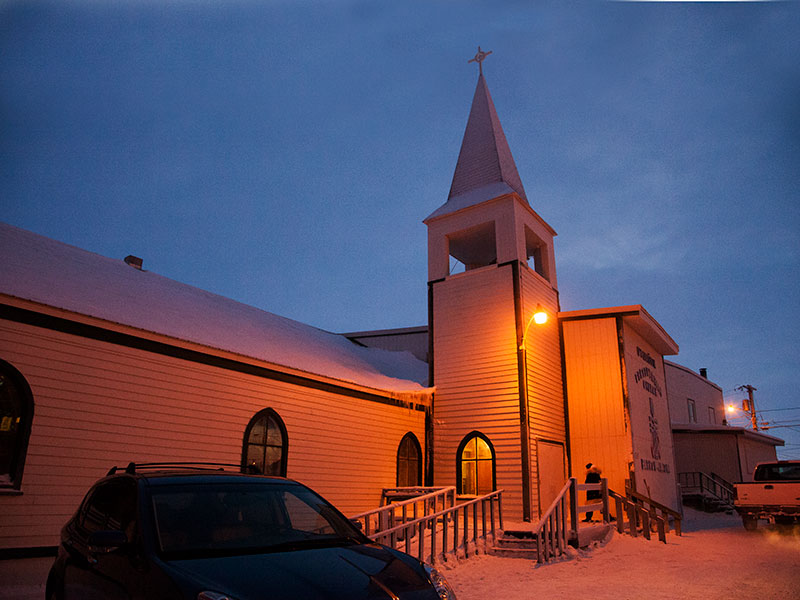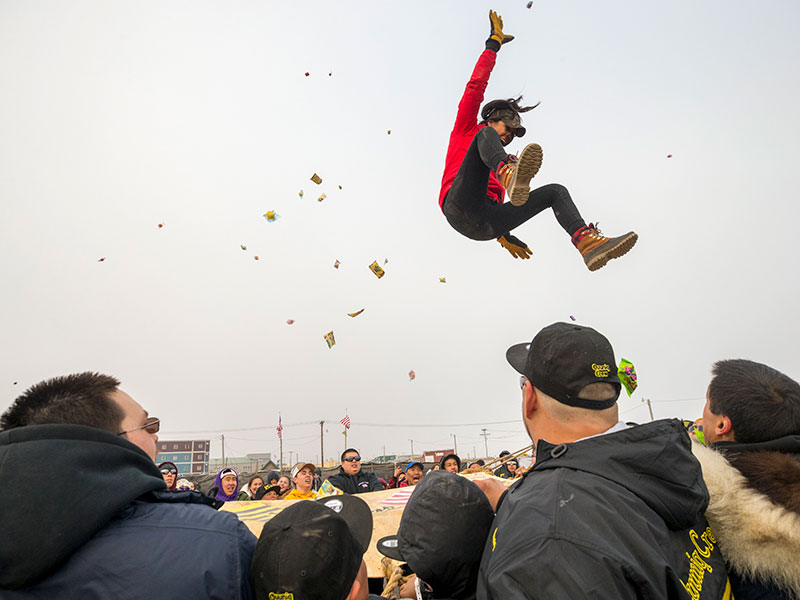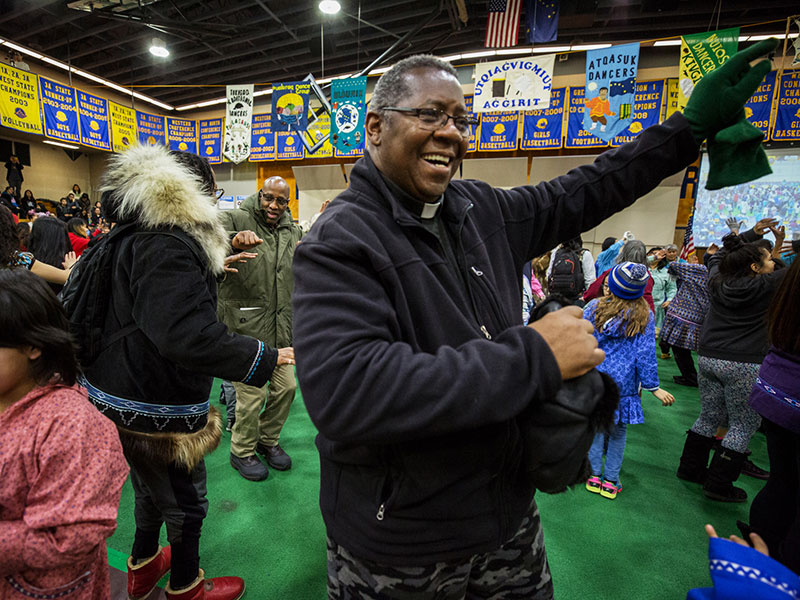God knows no barriers
March 7, 2019
The Rev. Joseph Reid has had two unique calls from God to preach at two historic churches with one big difference — the view.
“My office window at Westminster Presbyterian Church in Birmingham, Alabama, looked out on the overflow parking area for the church,” Reid said. “From my office in Utqiagvik, I can see the Arctic Ocean.”
Reid, who was born and raised in South Carolina, said his transition from a predominantly African-American congregation in Alabama to a mostly Iñupiaq congregation in Alaska has been virtually “seamless.” Of course, he’s noticed the change in temperatures from Birmingham to Utqiagvik (formerly Barrow), the northernmost city in the United States. He’s also noticed the ice, the wind and the snow — in July. Still, none of these differences troubled him.
“That’s how I knew this was a testament to God’s call,” he said. “There are no barriers for the experience of God. Culturally, there’s no barrier for the experience of God; racially, there’s no barrier for the experience of God; traditionally, the experience of God is universal. That’s what the Iñupiat people have taught me. They say ‘amen’ the same way African-Americans say ‘amen’ — only they say it in two languages.”
Established by Presbyterian missionaries, Utqiagvik Presbyterian Church had just 13 Alaska Natives in attendance at its first service, on Easter 1899. Today, more than 250 members and visitors attend services regularly.
The village of Utqiagvik has a population of more than 4,300 people, of which more than 60 percent are Iñupiat. For a major source of their food, many Iñupiat people take part in subsistence hunting, fishing and whaling. Utqiagvik Presbyterian also operates a food bank, coordinated by deacons with help from community volunteers, which helps feed up to 500 people each month. The food bank receives funds from the Arctic Slope Community Foundation, which was founded by the Arctic Slope Regional Corporation (ASRC).The ASRC is one of the original 12 Alaska-based regional corporations created by the Alaska Native Claims Settlement Act (ANCSA). Signed into law in 1971, ANCSA was designed to resolve land claims of Alaska Natives.
Two major reconciliation events, one led by the Presbytery of Yukon in 2012 in Gambell, Alaska, and a second national church event in February 2017 in Utqiagvik, responded to the intergenerational trauma that indigenous people have suffered because of the collision of Western and indigenous cultures and the complicity of the Presbyterian Church and other churches in overrunning cultures, according to Karns.
In February 2017, the Rev. Dr. J. Herbert Nelson, II, Stated Clerk of the Presbyterian Church (U.S.A.)’s General Assembly, and the Rev. Gradye Parsons, former Stated Clerk, traveled to Utqiagvik to issue a formal apology to Native Americans, Alaska Natives and Native Hawaiians. Directed by an action of the 222nd General Assembly (2016), the apology was delivered during a renewal and healing event.
“We didn’t just come to apologize,” Nelson said. “We came to build a much stronger relationship.”
He added, “It’s our intention to bring this family together, to call people into relationship with one another and to stand firm in the differences wherever Christ Jesus has set us free to be who we are and whose we are, brothers and sisters in faith, crossing boundaries, crossing lines and recognizing that we serve a God who is powerful and mighty and who can do all things.”
This official apology by the PC(USA) and the apology by the Presbytery of Yukon have led to the creation of a multidenominational Intergenerational Arctic Ministry (IAM) for faith-based trauma healing in Yukon Presbytery. Molly Pederson, a member of Utqiagvik Presbyterian Church and president of the IAM Board, said this initiative is just beginning.
“We are going to concentrate on healing from addictions because that seems to be the problem that has arisen from the trauma of long ago,” Pederson said, referring to church-supported boarding schools. “Being taken from parents and family to go to school away from home really had a bad effect on us. People turned to alcohol or drugs to try to deal with it. This ministry is going to try and help heal us.”
Tammy Warren, Communications Associate, Presbyterian Mission Agency
Today’s Focus: Remote Alaskan Church
Let us join in prayer for:
PC(USA) Agencies’ Staff
Steve Maier, ASG M
Troy Marables, FDN
Let us pray:
Gracious God, we celebrate that you are in charge of our future. We are honored to be part of your amazing story of birth and new life. Allow us to be open to you and your guiding Spirit. Amen.


